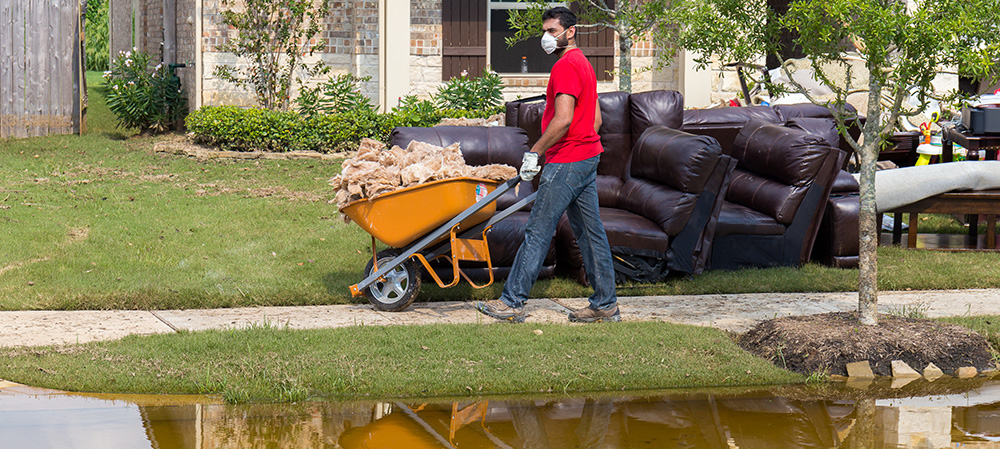 A man wears a mask to protect himself from inhaling harmful pollutants during Hurricane Harvey cleanup in a Houston suburb. Photo Credit: Shutterstock Images, 2017.
A man wears a mask to protect himself from inhaling harmful pollutants during Hurricane Harvey cleanup in a Houston suburb. Photo Credit: Shutterstock Images, 2017.
It’s no secret that disasters can take a toll on houses and human health, but it might surprise you to learn that mitigating houses against hazards can also have health benefits. Research by Sarah Grineski at the University of Utah examined the correlation between pre-disaster mitigation of homes and the health outcomes of residents after Hurricane Harvey struck Houston in 2017. Her findings indicate that pre-event mitigation was associated with fewer physical health problems, lower posttraumatic stress, and faster recovery times.
Join us on February 11 in the next Making Mitigation Work webinar, How Mitigation Helped Houston Households in Hurricane Harvey as Grineski discusses her research in further depth.
The webinar is the sixth in the Making Mitigation Work webinar series, which is presented in partnership with the Federal Emergency Management Agency. The free webinars feature innovative speakers and highlight recent progress in mitigation policy, practice, and research.
Space for this webinar is limited, so please register using this online form. If you’re unable to attend or miss an installment, recordings of past events are available on the series web page. Continuing education credits from the International Association of Emergency Managers are also available for those who attend Making Mitigation Works Webinars. You can learn more on the webinar page.
Check out the recording of the most recent past webinar in the series No Code. No Confidence: A Campaign to Strengthen National Building Code Awareness —now.